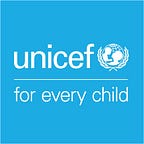Reaching the Unreached
The early years present a once-in-a-lifetime window of opportunity to make a difference in a child’s life.
The early years of life are of crucial importance for every child’s development. And have a profound impact on a child’s future. At no other time in life does a person learn and develop as fast and intensely as in the early years. In St. Kitts and Nevis, the Government’s Reaching the Unreached programme supports home-based early childhood interventions for young children.
Denee Warner in Cottonground, in Saint Thomas Lowland Parish, on Nevis Island, brings her 19-month-old son, Justice, to Marilyn’s Nursery.
She wants from a day-care facility “the same care as I give him…. For him to feel like Mommy’s still here, so that he gets the same love and attention.”
There are eight early childhood home-based centres in the Reaching the Unreached programme on the island of Nevis. Caregiver Marilyn Matthews (on the couch), interacting with children at Marilyn’s Nursery — which she owns and runs — was one of the first people to participate in the Programme.
The centres are all privately owned because there are no government-run early childhood centres for children under the age of 3 on Nevis Island. Marilyn’s Nursery provides child-care services for children from 3 months old to 3 years old. A child at the nursery plays with blocks.
Early Childhood Education Officer Florence Smithen (left), from the Ministry of Education, reads with a child during an outreach visit to Marilyn’s Nursery. Florence, Marilyn’s supervisor, guided her through the steps to take to qualify and register her home-based early childhood centre.
The programme, through the Ministry of Education’s Early Childhood Unit, provides training for caregivers working in private home-based early childhood centres, including on feeding, feeding charts and acceptable nursery practices. A 3-year-old girl eats a snack at Marilyn’s Nursery.
When the Reaching the Unreached programme first began, caregivers were initially reluctant to provide activities for babies. Children were fed and put to bed, with little stimulation or interaction from their caregivers. At Marilyn’s Nursery, Nina learns to walk with the help of a caregiver.
Running water is one of the key basics that home-based early centres must have in order to be registered and in compliance with the standards set by the Early Childhood Unit. Marilyn bathes a child at the nursery.
Play is central to children’s learning. Parents and caregivers determine the level of young children’s development through interaction and play. Indoor and outdoor play areas are also part of the mandated requirements for home-based centres. Children play a game in Marilyn’s Nursery.
Justice Warner naps in the nursery. His brother and his sister (Jaylen, 10, and Maiya, 8) both also attended Marilyn’s Nursery.
“I hope that he gets the education for him to be anything he wants to be, so he can be really comfortable during life,” Justice’s mother, Denee, says.
“[W]hen I see children getting the best care … the caregivers happy … that’s what keeps me going — that things are progressing, that things are going well,” says Florence (left), with UNICEF Early Childhood Specialist Shelly-Ann Harper at Marilyn’s Nursery.
Early Childhood Unit Acting Director June Wallace looks at play materials, including children’s books and toys — used at early learning centres participating in the Reaching the Unreached programme — in the Unit’s lending library at the Ministry of Education, in Basseterre on St. Kitts Island.
Reading to children and telling them stories are among activities that promote learning. Reaching the Unreached Programme Officer Education Kalvern Powell-Cabey, from the Early Childhood Unit, reads to children, at Shining Star Nursery in Buckley’s Estate, in Basseterre on St. Kitts.
Using a variety of age-appropriate objects, toys and books to encourage children to play and explore also promotes learning and is important for their cognitive development and the development of social skills. Toddlers play with toys at Shining Star Nursery, in Buckley’s Estate in Basseterre.
Naming and counting things with children promotes learning as well. Kalvern plays with two children jumping with excitement at the nursery after building a tower using ‘low cost/no cost’ blocks with numbers and letters of the alphabet.
Caregiver Claudette Thompson (centre), who owns and runs the Shining Star Nursery, in Buckley’s Estate, wipes a girl’s face in the nursery’s outdoor play area — which all home-based early learning centres on St. Kitts and Nevis must have in order to operate legally.
The UNICEF-supported programme also monitors the ratio of caregivers to children: one caregiver for every four babies and two for every seven toddlers. Kalvern (foreground) and Claudette discuss early childhood education matters at Shining Star.
Children eat a nutritious lunch at Shining Star Nursery. Young children grow and learn the most when they receive affection, attention and stimulation as well as good nutrition that fuels their developing brains. Early childhood development interventions cut across all UNICEF programme areas.
A good foundation in the early years makes a difference throughout adulthood. Ensuring the healthy cognitive, social and emotional development of young children is the right of every child and deserves the highest priority. Claudette holds a tired baby at nap time in the nursery.
